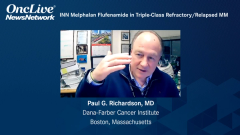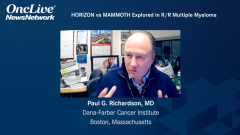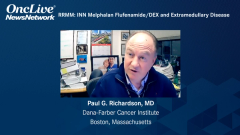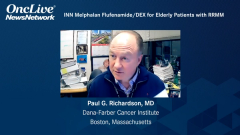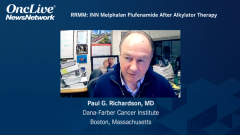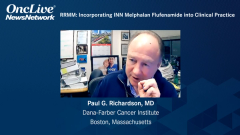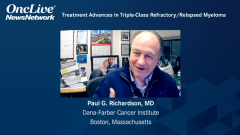
RRMM & High-Risk Cytogenetics: INN Melphalan Flufenamide/DEX
Episodes in this series

Paul G. Richardson, MD: A number of my colleagues have presented very important other subgroup analyses. Dr María-Victoria Mateos presented a very nice paper on the high-risk cytogenetic subgroup. What Dr Mateos was able to show was that the impact of melflufen in high-risk cytogenetics appeared to be consistent with the response rates overall seen in patients without high-risk cytogenetics. We thought that was very encouraging. Similarly, the toxicity profile, the adverse-effect profile for the drug, was very consistent in both groups.
In that regard, she was able to demonstrate really nice response rates even in those who had 3 or even 4 abnormalities—recognizing those were relatively small numbers, but certainly in patients who had 1 or 2 cytogenetic abnormalities, as protocol specified. They were very consistent with the study results overall, suggesting this novel mechanism of action does apply in the high-risk setting. Specifically, she was able to show that the overall response rate was around 24% in those with high-risk cytogenetics and that there was an associated overall survival signal that was quite encouraging with an overall survival of 13.2 months in a particular subgroup. These are patients who would normally have a much shorter survival.
The response rates were already quite consistent with the data set overall. How did the median overall survival look? Obviously, that’s a key benchmark because it’s all very well to respond if you have high-risk cytogenetics. The question is, how long and what does that mean in terms of overall survival benefit? We were encouraged to see that for the study overall, the median overall survival was around 13.2 months. In the high-risk subgroup, it was 11.5 months. That’s not too far short of what we saw for the group overall, suggesting in this high-risk group there is some evidence of clinical benefit.
Transcript Edited for Clarity


